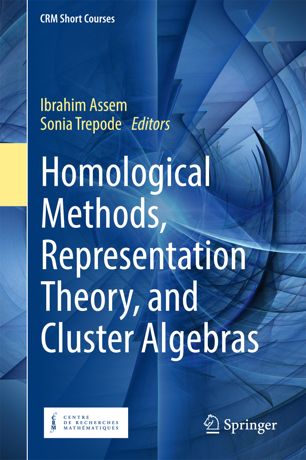

Most ebook files are in PDF format, so you can easily read them using various software such as Foxit Reader or directly on the Google Chrome browser.
Some ebook files are released by publishers in other formats such as .awz, .mobi, .epub, .fb2, etc. You may need to install specific software to read these formats on mobile/PC, such as Calibre.
Please read the tutorial at this link: https://ebookbell.com/faq
We offer FREE conversion to the popular formats you request; however, this may take some time. Therefore, right after payment, please email us, and we will try to provide the service as quickly as possible.
For some exceptional file formats or broken links (if any), please refrain from opening any disputes. Instead, email us first, and we will try to assist within a maximum of 6 hours.
EbookBell Team

0.0
0 reviewsThis text presents six mini-courses, all devoted to interactions between representation theory of algebras, homological algebra, and the new ever-expanding theory of cluster algebras. The interplay between the topics discussed in this text will continue to grow and this collection of courses stands as a partial testimony to this new development. The courses are useful for any mathematician who would like to learn more about this rapidly developing field; the primary aim is to engage graduate students and young researchers. Prerequisites include knowledge of some noncommutative algebra or homological algebra. Homological algebra has always been considered as one of the main tools in the study of finite-dimensional algebras. The strong relationship with cluster algebras is more recent and has quickly established itself as one of the important highlights of today’s mathematical landscape. This connection has been fruitful to both areas—representation theory provides a categorification of cluster algebras, while the study of cluster algebras provides representation theory with new objects of study.
The six mini-courses comprising this text were delivered March 7–18, 2016 at a CIMPA (Centre International de Mathématiques Pures et Appliquées) research school held at the Universidad Nacional de Mar del Plata, Argentina. This research school was dedicated to the founder of the Argentinian research group in representation theory, M.I. Platzeck.